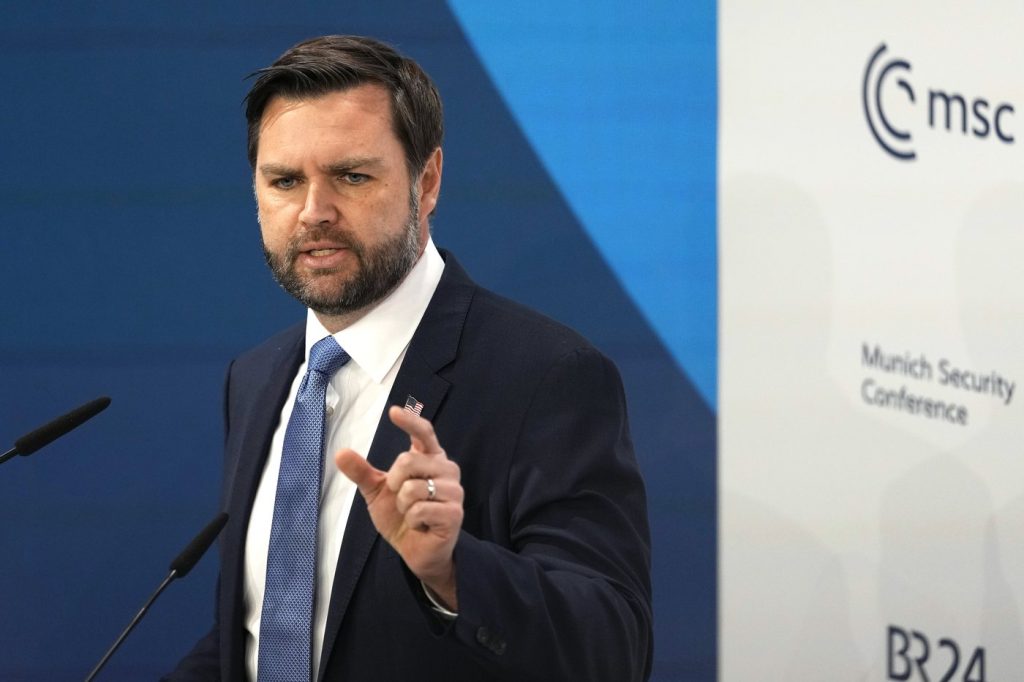MUNICH (AP) — Germany's Defense Minister Boris Pistorius responded robustly to U.S. Vice President JD Vance’s remarks at the Munich Security Conference concerning the state of democracy in Europe. Vance had criticized European governments, expressing concerns that democracy is in "retreat" across the continent, particularly emphasizing the restrictions on free speech. His comments came just nine days before the German elections scheduled for February 23, 2025.
In his address, Vance suggested that entrenched interests in Europe were using terms like "misinformation" and "disinformation" to suppress alternative viewpoints. He argued that such measures are dangerous to democracy, claiming that governments should not disregard the concerns of voters, stating, "If you’re running in fear of your own voters, there is nothing America can do for you." He expressed that democracy hinges on the recognition that the voice of the people is significant and emphasized that there should be "no room for firewalls." This was likely a reference to the mainstream parties in Germany refraining from collaborating with the far-right, anti-immigration Alternative for Germany (AfD) party.
Minister Pistorius addressed Vance's comments shortly after, stating that comparing conditions in Europe to those of authoritarian regimes was "unacceptable." He expressed pride in the European democracy in which he lives and is campaigning. He pointed out that every opinion is represented in German democracy, which allows parties like AfD to campaign alongside others in a democratic way. On Thursday night, AfD chancellor candidate Alice Weidel also appeared on prime-time television, demonstrating that the party operates fully within the democratic framework.
Polls show AfD gaining significant traction, currently positioned second in the anticipated national elections with approximately 20% voter support. Despite this, Pistorius cautioned that democracy does not equate to the notion that a "loud minority" is inherently correct. He underscored the importance of defending democracy against extremists who may seek to dismantle it.
Pistorius’ remarks reflect a broader concern within Europe about the implications of rising populism and far-right politics. As Germany approaches its elections, the dialogues surrounding free speech, heightened political tensions, and the balancing act of inclusivity versus safeguarding democratic values are likely to continue.











